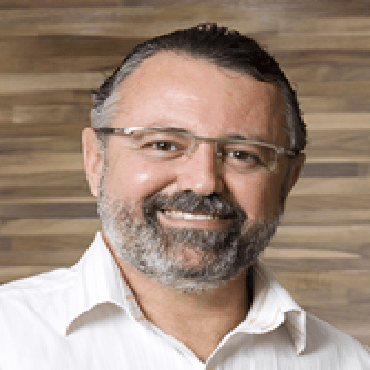Scientific Program

Divaldo Rezende
Institute of Ecologica, Brazil
Title: Research center on Metagenomics and Bioprospecting in the cerrado biome (RCMB)
Biography:
Divaldo Rezende is an accomplished Senior Executive and Consultant with more than 30 years of success across the environmental services, energy, and financial services industries. Throughout his executive career, Mr. Rezende has held leadership positions at companies including Ecologica Institute, Ecologica ID, and CantorCO2e Brazil. As Executive Director & VP of Ecologica Institute since July 2017, he has raised more than $100M for social and environmental projects in the Amazon region of Brazil, spearheaded forestation of more than 1,000 acres in the Amazon rain forest, and is working on several projects to help improve environmental issues and climate change mitigation. He previously served for two years as Secretary of State for Environmental and Sustainable Development with Tocantins State for two years. He earlier spent four years as Managing Director of CantorCO2e Brazil, helping companies in principal emissions markets with financial services. This was preceded by five prior years as President of Ecologica Institute, after he founded the organization in 2000. He also served as a Consultant to the United Nations from 2000 to 2013, working on programs in sustainable development.
Abstract
Most of the biomass present in the planet is in the form of microorganisms. Recent molecular studies indicate that 1 g of soil may contain about 10 billion cells and thousands of microbial species. The discovery that the vast majority of these microorganisms are not cultivable (<1%) stimulated the development of technologies for culture-independent molecular studies (metagenomics). Currently, metagenomics arises as the main method of biotechnological search for new genes, enzymes and bioactive drugs. Metagenomics-based bioprospecting activity and the discovery of new substances of industrial interest have stimulated huge investments in research and the creation of several biotechnology companies worldwide. Large pharmaceutical companies, for instance, often hire small and medium enterprises to bioprospect for new molecules and to do the initial screening for potentially valuable products. The South Amazon Ecotone is located at the contact region between the Cerrado and the Amazon forest, and is commonly defined as the Amazonian savannas. The climate and geological characteristics of this region enable the development of a complex and sensitive biotic system and high level of endemism. This system depends on microorganisms to maintain the essential ecological processes. In general, the various interactions that occur between microorganisms and the environment (e.g. nutrient cycling) and other macro-organisms (e.g. symbionts) are considered essential to maintaining the health of ecosystems. Studies conducted at the beginning of this millennium, indicate that the Brazilian Cerrado belongs to the group of 25 “hotspots”recognized as the main centers of biodiversity in the world. The environmental conditions that enable the development of ecotone unique gene pools probably hold immeasurable potential for biotechnology. However, the biotechnological potential associated with this diversity is still mostly unknown as the Amazonian savannas have been poorly studied. This project proposes the creation of a research Center for Metagenomics and Bioprospecting in Cerrado (RCMB). Its main task will be to promote the bio-entrepreneurship, study, conservation and sustainable management of the Cerrado and its transition ecosystems.
- Biodiversity & Ecology
- Marine & Coastal Biodiversity
- Bioprospecting Sustainable Use
- Afforestation
- Environmental Toxicology
- Genetic Diversity
- Agrobiodiversity & Agroecology
- Captive Breeding
- Molecular Ecology
- Phenology
- Biodiversity Informatics
- Revive & Restore Species

